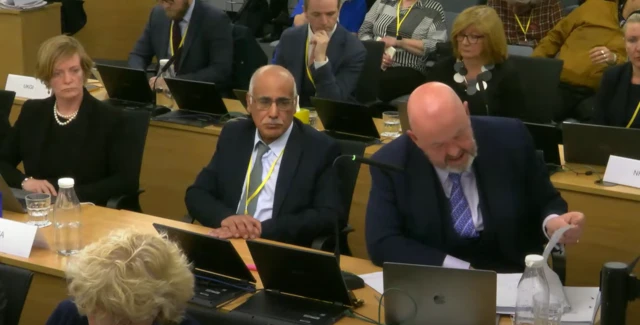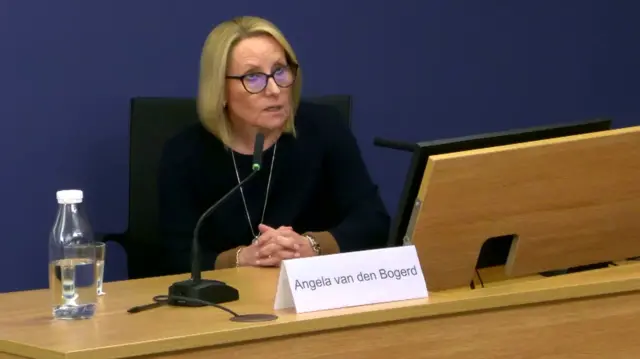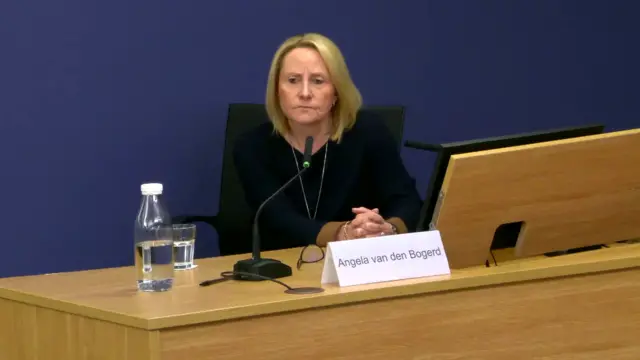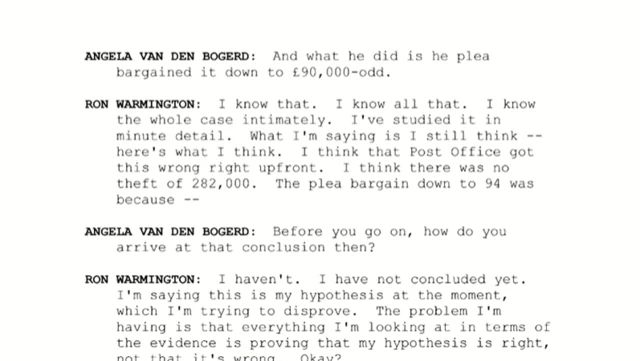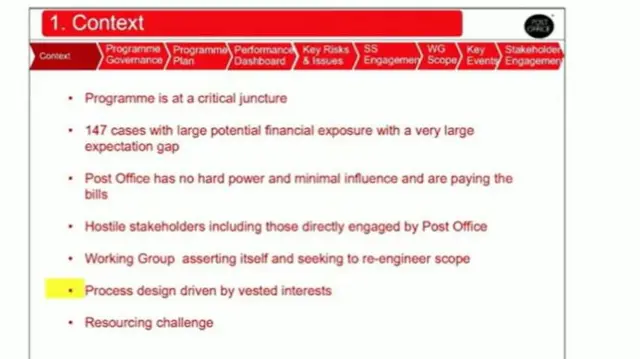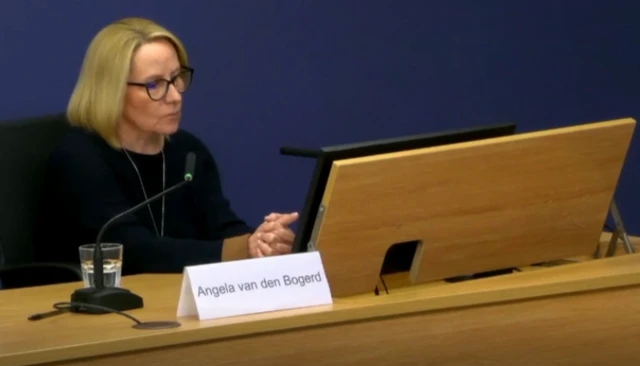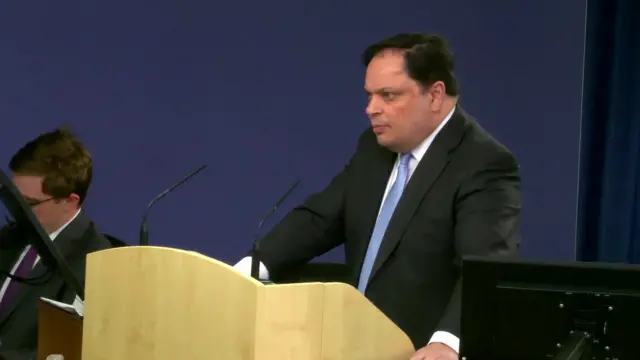The Post Office Horizon scandal explainedpublished at 13:56 BST 26 April 2024
More than 900 sub-postmasters were prosecuted for stealing because of incorrect information from a computer system called Horizon, in what has been called the UK's most widespread miscarriage of justice.
The Post Office itself took many cases to court, prosecuting 700 people between 1999 and 2015. Another 283 cases were brought by other bodies, including the Crown Prosecution Service (CPS).
Many went to prison for false accounting and theft. Many were financially ruined.
In 2017, a group of 555 sub-postmasters took legal action against the Post Office. In 2019, it agreed to pay them £58m in compensation, but much of the money went on legal fees.
A draft report uncovered by the BBC shows the Post Office spent £100m fighting the group in court despite knowing its defence was untrue. The Post Office said it would be "inappropriate" to comment.
Although campaigners won the right for cases to be reconsidered, so far only 102 convictions had been overturned.
